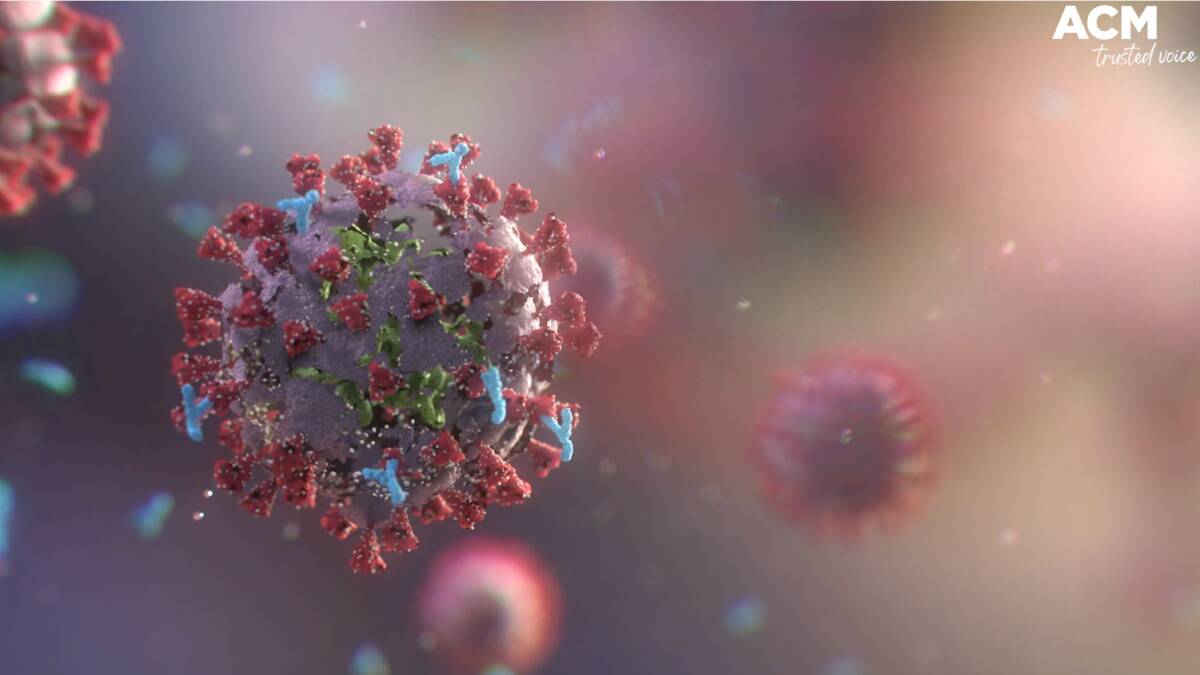We all know that one person who has managed to stay COVID negative even while they've been surrounded by the virus.
They might have spent eight hours in the car with someone who then immediately tested positive, or they could have locked down while their entire family was ravaged by the disease, and yet they remain unsymptomatic and fail to test positive on either RATs or PCRs.
So what's their secret? Are they somehow impervious to the virus? Are they superhuman? Do they have a right to their smug superiority? (Disclaimer: The author of this article is one such smug person).
Australian National University geneticist Dr Gaetan Burgio describes these questions as "simply complex".
"It's simple because the question is very simple. Why will some get COVID while others won't? But the answer is quite complicated," Dr Burgio said.
Related:
Since the pandemic began in 2020, experts have been looking to see if there are particular genetic markers that may indicate whether a person is more or less likely to contract COVID-19.
"There are certain people that have a genetic resistance to the SARS-CoV-2 virus," said Associate Professor Hassan Vally, an epidemiologist at Deakin University.
"If you think about other diseases and even HIV AIDS, it seems like there are a very, very small proportion of people that had a genetic resistance to that virus.
"So if we could understand that a bit better, it may lead to different ways of responding and treating the infection."
It might seem abundantly obvious, but resisting the virus comes down to having a healthy, functioning, and robust immune system.
But it also has a lot to do with your genetics.
A study published by the Imperial College, London in January 2022 focused on family members who were isolated together while at least one person in the household had the virus.
Those who were more likely to be resistant to the virus were those who had higher counts of certain T-cells generated after recovering from different colds.
So how does this work?

T-cells are produced by your immune system whenever you become infected with any virus. They are there to stop you from becoming re-infected with that virus again. Your body learns the code to keep it safe from that virus again.
Although COVID-19 is a new virus, the immune system may recognise the virus's similarities to previous colds - other coronaviruses - and may be developing its own cross-protection mechanisms.
It also may be that these people have specific Human Leukocyte Antigen (HLA) genes, which control the immune response.
People who have a specific HLA gene - known as the HLA-DRB1-11302 - were a lot more likely to be protected from the virus.
A study of healthcare workers in the UK found that of those who did not catch the virus, 15 per cent had very strong T-cell reactions to previous coronaviruses.
So, for example, if you caught a relative coronavirus (like the common cold) before the pandemic started, the antibodies in your system might be strong enough to keep you from getting COVID-19.
Though it is very hard to predict how individuals will respond to the virus, even when the presence of these cross-protecting T-cells has been confirmed.
Another reason for resilience to COVID-19 might exist within the body's innate immune system function.
A person's ability to produce 'interferons' may stave off the infection after exposure.
Interferons are proteins that are part of your natural defenses.
So, in some people, once the virus hits the inside of the nose, the body reacts by producing loads of interferons that stave off the infection before it takes hold.
Effectively, these interferons kill the virus on contact and the disease never develops.
Related:
In this case, even if the person has been exposed to the virus they are not likely to test positive and are not likely to shed enough virus to cause anyone else to become infected.
"It needs to be noted that the PCR test is incredibly sensitive. And so, you know, there are people who test positive on a PCR test who in all actuality aren't actually shedding enough of the virus to be a threat to other people," said Professor Vally.
"The PCR test is so sensitive, you know, it may be identifying people who are technically positive but from a public health perspective don't actually pose an infective threat to other people."
According to Dr Burgio, it is important to ask not only what these virus-resistant people have that might make them immune, but also what they do not have.
And that is, they do not have any underlying conditions that would make them more susceptible to the virus.
"It's about how the immune system is made," Dr Burgio said.
"The fact is that some [people] have underlying conditions that just, for example, will make their [immune] system deficient.
"These people are most likely to get a severe infection, whereas someone who does not have, for example, a cardiovascular condition or diabetes [which] weakens the immune system against it, is not as likely [to get COVID]."


